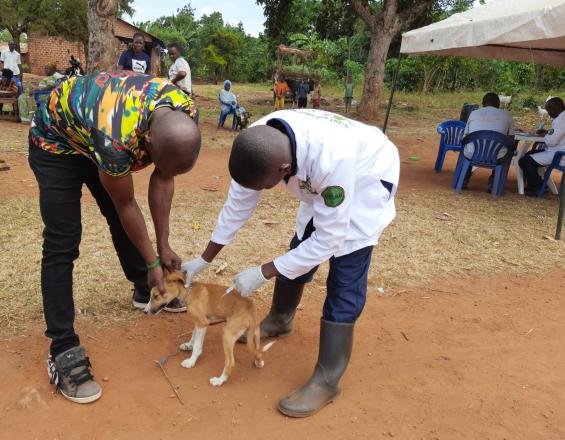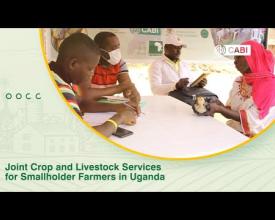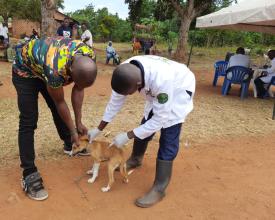
How Crop–livestock clinics are advancing One Health

In low-income countries, farmer advisory services are in short supply, leaving smallholder farmers under-served. CABI’s work with plant clinics revealed potential ‘One Health’ benefits of broadening the scope of plant clinics to better meet farmers’ demands for advice. To explore this potential, ‘crop-livestock clinics’ were established in six districts in Uganda in 2021. These ‘joint clinics’ add value to the One Health offer in several ways: 1) crop and livestock staff share operational costs, knowledge and insights in a way that they are normally not able to do; 2) plant and livestock consultations in the same place save time for farmers and provide opportunities for cross-learning among farmers and clinic staff; 3) joint clinics are an entry point to improving referral systems and targeting delivery of technology such as animal vaccines and clean cassava cuttings; and 4) they provide a novel avenue for finding out what farmers know and don’t know about One Health issues – crucial information to design solutions.
Impacts
Farmers face multiple issues with regard to the health and production of their crops and livestock, and several of these issues are interrelated affecting the health of people and the environment as well. The crop-livestock clinics add value to existing service delivery, making better use of existing organizational resources and capacities, while serving farmers in a more integrated way. Examples from the first pilot year:
- Some livestock officers brought rabies vaccines to clinic sessions to take advantage of the event to vaccinate dogs in the vicinity.
- In the first year, about 15% of the ~800 clinic visitors presented both crop and animal queries, and many stayed on to listen-in and learn from fellow farmers’ consultations.
- Based on queries brought by farmers, clinic staff subsequently organized village vaccination campaigns (e.g. Newcastle disease) and distribution of clean cassava cutting.
- In one district, a livestock lab technician gathered samples (urine, feces, blood) at clinic sessions and brought them back to the lab, thus improving referral procedures. The crop-livestock clinics provide an avenue to jointly identify and address One Health issues such as mycotoxins, zoonoses, misuse of pesticides and veterinary drugs.


